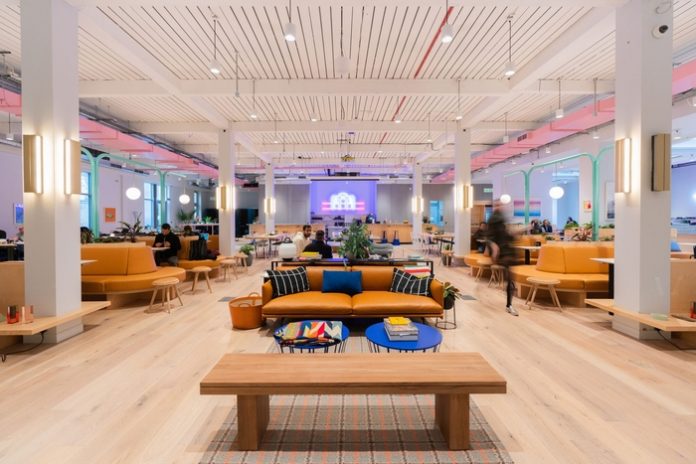Flexible working space will grow in the Birmingham office market in 2019 according to a new report from leading property experts JLL.
WeWork has the city in its sights and 103,625 sq ft was acquired by serviced office operators and managed office providers in the city in 2018.
JLL’s new report – Flex Space, Disruption or Distraction, shows that the market has more than doubled in size across Europe since 2014 and is predicted to grow by up to 30 per cent, per year over the next five years.
Kelvin Craddock, director office agency at JLL’s Birmingham offices says in the future, landlords will need to consider a less conventional approach to how they deliver office space.
“With the growth of the digital and creative sector in the city and the high proportion of start-ups, more traditional lease terms requiring three years’ worth of accounts, equivalent of three to six months’ rent deposit or the ability to sign up to a long lease no longer fits all.
“Younger businesses and start-ups have gravitated to the more flexible co-working space as it suits their business needs and attracts the talent they require to thrive.”
Kelvin added: “Typically they want a space with a high-spec interior design, telecoms cabling and broadband and they just want to move in, rather than carrying out their own, more costly fit-out.
“We’re certainly seeing some conventional landlords waking up to this and developing a hybrid of commercial space, offering a mix of the traditional combined with more flexible space.”
This hybrid model of commercial office space has seen unprecedented demand across Europe with over nine million sq ft added in top European markets since the start of 2016, representing 51% of new flexible space.
The growth of technology and the shift in workplace dynamics is also having a massive effect on real estate, with employees no longer tied to a desk and home working or working from a client’s site on the rise.
JLL’s research found that 56% of employees now work from other company’s premises at least once a month. 54% work from home, 36% on transport and 34% co-working. The gig economy also now accounts for 30% of the workforce, driving a more fluid, on demand business model.
“For more global flexible office operators such as WeWork,” said Kelvin “They can offer flexible office space across several countries and regions, which is attractive to larger corporates who want to operate out of several locations or test new markets but deal with one, trusted joined up office provider.
“What we have come to think of as the office is being redefined, driven by cloud computing, VPN’s and superfast broadband and with the arrival of 5G in Birmingham, the city is in even more of a position to accommodate top international companies and young innovative companies who are as keen to embrace disruption in the way they work as much as they are their business
Kelvin concludes: “We are seeing investors and landlords becoming much more creative and flexible in their approach, however as the report suggests there is still a lot more change and growth to come.”



















